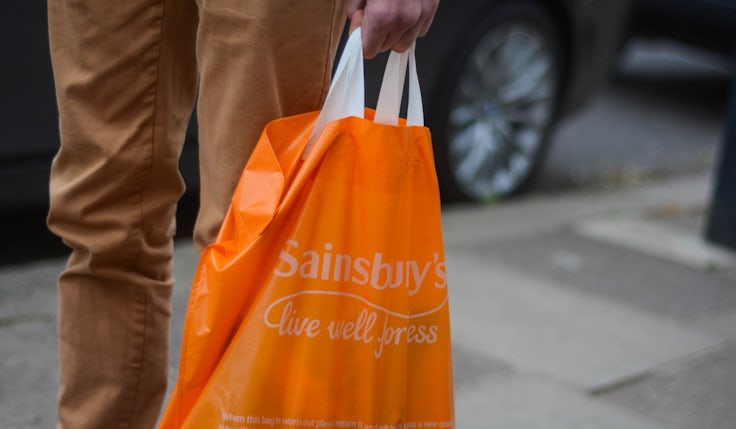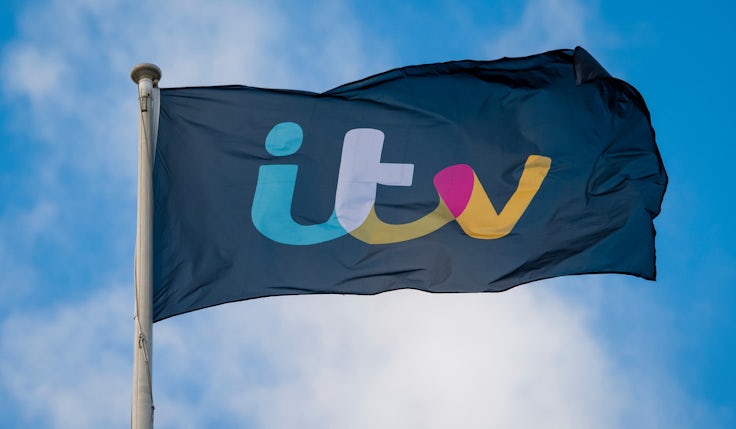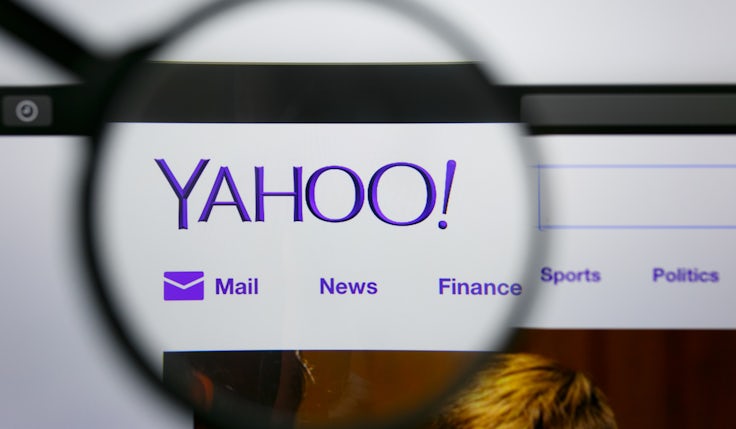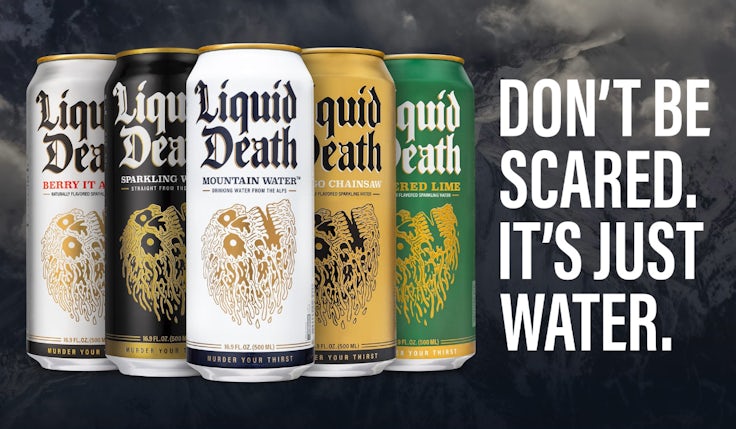Sainsbury’s, Selfridges, Polestar: Everything that matters this morning
Good morning and welcome to Marketing Week’s round-up of the news that matters in the marketing world today.
Sainsbury’s brings in former John Lewis managing director
Paula Nickolds, previously managing director of department store John Lewis, is to join Sainsbury’s as general merchandise and clothing commercial director.
Nickolds she will be responsible for the performance of a £7.8bn business across Sainsbury’s, Argos, Habitat and Tu Clothing. She will also be a member of the Sainsbury’s operating board. She worked at department store group John Lewis for 25 years after joining as a graduate trainee.
Sainsbury’s chief executive Simon Roberts describes Nickolds as “A highly respected, talented and experienced retail leader. I am certain that under her leadership, our brands that deliver – Argos, Habitat and Tu – will continue to delight our customers and support everything we are doing in food. Paula brings deep experience in product, brands and commercial leadership and she has a passion for understanding and delivering for customers.”
“It’s an important and dynamic time for the retail sector and I am thrilled to join the team for the next phase of growth and innovation, as well as the opportunity to make a difference to millions of customers’ lives through the much-loved Argos, Habitat and Tu brands,” says Nickolds.
Ready to rent service launched by Selfridges
 Selfridges Rental – a curated selection of menswear, womenswear and accessories available to rent for periods from four to 20 days – launches today on Selfridges.com.
Selfridges Rental – a curated selection of menswear, womenswear and accessories available to rent for periods from four to 20 days – launches today on Selfridges.com.
The launch is part of the wider Project Earth sustainability drive by the retailer, which it describes as a transformational project to address the way it does business. Launched last year, Project Earth was intended to build on a decade of earlier environmental intiatives.
Ranges available to rent comprise a wide selection of fashion brands, from well-known names to contemporary cult icons, to reflect the broader ranges available from the retailer. Customers can benefit from flexible use of the service to try items they are considering buying, or to wear a standout piece without paying the full retail price. They can also try out new styles without creating waste.
“For Selfridges Rental, the goal is to create an edit of the most desirable items to fit today’s ever-evolving lifestyle,” says Selfridges head of womenswear buying Jeannie Lee. Prices start from £20 for a four day rental.
Polestar sponsors Film4’s top slot
 Electric car brand Polestar has agreed a sponsorship deal with Film4. The channel’s 9pm film slot will be introduced with Polestar’s ‘Charge Your Senses’ campaign, to showcase the fully electric Polestar 2 model to more consumers than ever before.
Electric car brand Polestar has agreed a sponsorship deal with Film4. The channel’s 9pm film slot will be introduced with Polestar’s ‘Charge Your Senses’ campaign, to showcase the fully electric Polestar 2 model to more consumers than ever before.
The sponsorship deal will run seven days a week for the next 12 months. It allows Polestar to feature in the slot that attracts Film4’s biggest audiences, and which will be home to a number of network and channel premieres during 2021.
The Polestar campaign depicts the car in a series of short idents, with a 15 second, ten second, and five second treatments that mimic the minimalist design language of the brand. The tagline ‘Polestar 2. Quietly sponsors 9pm film on Film4’ highlights the noise-free attributes of the electric car.
“The reach of the 9pm film slot and the engagement of the viewers is perfect to continue supporting the launch of the Polestar 2,” says Polestar UK head of marketing and events Louise Hardman. “Previously the 9pm slot has been really successful for Film4, and we’re excited to help them continue that track record.”
Store footfall shows signs of recovery
Footfall in UK shops has started to show signs of recovery as Covid-19 restrictions are eased, according to the latest figures from the British Retail Consortium (BRC).
The BRC-Sensormatic IQ Footfall Monitor has compared footfall from April 2021 with the same period in pre-pandemic 2019 to give meaningful comparisons, as conditions were so turbulent in 2020. This process has yielded year-on-two-year (Yo2Y) figures, rather than the traditional year-on-year changes.
As stores reopened during April they recorded footfall up 28.7% from March this year, but down 40% Yo2Y. The Yo2Y drop in footfall affected high streets (-43.9%) and shopping centres (-49.8%) more than it did retail parks (-30.5%).
BRC chief executive Helen Dickinson says the easing of restrictions is behind the gradually improving footfall.
“While shops have worked incredibly hard to provide consumers with a safe and enjoyable shopping experience, it is unlikely we will see a return to pre-pandemic levels of footfall any time soon, as social distancing measures naturally restrict retailers’ capacity,” she says. “Growing consumer demand and footfall in the months ahead will be vital for the survival of many retailers, as they start to see costs increasing as stores reopen and colleagues return from furlough.”
New board members for The Marketing Society
The Marketing Society has appointed a number of new board members, a month after three long-serving members came to the end of their tenures.
The new members include Costa Coffee executive commercial and customer director Becky Brock, The Barber Shop founder Dino Myers Lamptey, Formula 1 director of marketing and communications Ellie Norman, Camelot CMO Keith Moor, Direct Line managing director for marketing and digital Mark Evans, and Mr Porter global marketing director Sabah Naqushbandi.
Adrian Last, Julian Boulding and Nigel Vaz announced their departures from The Marketing Society last month.
“We knew that replacing our brilliant departing Board members wouldn’t be easy. We set out to find high achieving marketers with the skills and experience to help us shape the future of the Society and our industry. I’m absolutely delighted to have found such a brilliant group of talented people with real passion to make a difference for all of our members,” says The Marketing Society chair Craig Inglis.
Thursday, 6 May
Twitter pushes out prompt asking users to review offensive replies
Twitter is ramping up its use of prompts asking users to review potentially offensive replies after initial tests revealed 34% of those prompted revised their initial reply or decided to not send their reply at all.
The social media platform also found that after being prompted once to reconsider a potentially harmful or offensive reply, users composed on average 11% fewer offensive replies in the future. Furthermore, if prompted people were less likely to receive offensive and harmful replies.
Based on these tests Twitter is now rolling out improved prompts out across iOS and Android, starting with accounts that have enabled English-language settings. Work has been done to improve the algorithms powering the prompts, which in tests sometimes struggled to capture the nuance in conversations and often didn’t differentiate between “potentially offensive language, sarcasm and friendly banter”.
Twitter is now considering the nature of the relationship between the author and replier, and how often they interact, to gain a better understanding of the preferred tone of communication. The company has also adjusted the tech to better account for situations in which language may be reclaimed by underrepresented communities and used in non-harmful ways, as well as to more accurately detect profanities.
The move comes just days after clubs from the Premier League, English Football League, Women’s Super League and Women’s Championship teamed up on a four-day boycott of Twitter, Facebook and Instagram to raise awareness of the abuse being suffered by players on social media channels.
Apple increases App Store ad space following iOS 14.5 rollout
 Apple has added extra advertising space to its App Store just a week after the introduction of the iOS 14.5 update placed strict limits on tracking via iPhone.
Apple has added extra advertising space to its App Store just a week after the introduction of the iOS 14.5 update placed strict limits on tracking via iPhone.
The new ad space allows app developers to advertise on the App Store search tab, rather than just in the search results, according to the BBC. Apple first introduced ads to the App Store in mid-2016.
The ramping up of ad space on the App Store comes a week after Apple’s App Tracking Transparency (ATT) tech was made the default on the Apple iOS 14.5 operating system. Under ATT, every app downloaded via the App Store must ask the user for permission to share their Identifier for Advertisers (IDFA) data with third parties, rather than the previous opt-out functionality.
Giving Apple users the option to block app tracking could prove very costly to Facebook’s business model. Furious at the introduction of the ATT technology, the social media giant claimed the clamp down on tracking would hurt brands and benefit Apple’s own advertising ecosystem.
In December, Facebook argued Apple’s new policy will have a “harmful impact on many small businesses that are struggling to stay afloat”. The company claimed that Apple has introduced ATT under the “banner of increased privacy”, when in fact its policy leaves “limited options” for app developers to find customers through effective advertising.
Facebook also argues that Apple uses in-app purchase data it collects from within apps owned by other companies “to improve the efficacy” of its own ad products.
READ MORE: Apple puts more adverts in App Store after ad-tracking ban
TV viewership up 17% in lockdown, as TikTok usage surges
UK consumers spent 17% more time watching TV of any form compared to before the first lockdown in 2020, with consumption up 15% during the latest national lockdown alone.
According to the IPA’s TouchPoints 2021 data, the share of total media time taken by TV viewing increased from 33% to 37%, as people turned to TVs and digital devices for news and entertainment during the 2021 lockdown. Some 66% of TV and video viewing among UK adults was live or recorded, although there is a clear generational divide with 89% of over 55s tuning in, versus 27% of 15-34s.
Shorter and longer online video took a 19% share of all TV and video viewing for 15-34s, compared to 7% for all adults and just 1% for over 55s. Paid for on demand video claimed a 40% share for 15-34s, compared to 5% for over 55s and 19% for all adults.
The IPA data, which highlights the ways in which the 2021 national lockdown has affected the lifestyles, media choices and communication habits of UK consumers compared to the first lockdown in 2020 and pre-lockdown last year, also reveals the surging popularity of TikTok among younger generations.
Some 43% of 15-24s engaged with the social media platform during the latest lockdown, up from 13% prior to the onset of Covid-19 and 30% during the 2020 lockdown. For all adults this stood at 11.5% in lockdown 2021, up from 4.1% prior to the first lockdown and 7.3% during the 2020 lockdown.
Another key finding from the IPA data is the boom in takeaway and food delivery brought on by the Covid-19 induced lockdowns. The amount of people ordering takeaways or food deliveries during the first lockdown in 2020 rose by 5.5% compared to pre-pandemic levels and then surged by 45% during the 2021 lockdown.
The number of 15-24s ordering takeaways during the first lockdown rose by 11.4% versus pre-Covid, although this figure rose 38.8% during the 2021 lockdown to 30.4% of consumers within this age bracket. The IPA data also reveals an 87% increase in searches for fast food and delivery between pre-lockdown 2020 and lockdown 2021.
As in 2020, this year the IPA plans to release two waves of the data in a bid to fully understand how consumer behaviour is changing due to the pandemic and national lockdowns.
“These latest figures provide tangible evidence on our suspected hunches and reveal consumers’ real hunger for video content and fast food,” says IPA research director Belinda Beeftink.
“It also reveals interesting insights into how some good intentions from the first lockdown perhaps slipped into bad habits in lockdown 2021, as we grew increasingly weary and less communicative.”
Bud Light launches England football campaign ahead of Euros
Bud Light is celebrating its status as the official beer partner of the England national team with a new campaign aimed at drumming up excitement for the Euros tournament kicking off next month.
The ‘Bud Light Boxheads’ campaign features packs of 12 and 20 bottles covered with the faces of England stars Jordan Pickford, Kieran Trippier and Kyle Walker, the idea being that fans can turn the boxes into masks to celebrate the team.
Bud Light, which first started sponsoring the English national team in 2018, has also launched a limited-edition England can design featuring The Three Lions crest and has introduced an England beer store in partnership with Amazon Fresh.
Created by Wieden & Kennedy London, the fully integrated campaign features a TV advert promoting the Bud Light England can, which will be amplified via video-on-demand, digital out-of-home and outdoor ads. In addition, a launch film featuring the players will appear on social media, alongside other social activations created in partnership with influencers and The Football Association (FA).
The campaign will be supported by “large-scale” retail activity, giveaways and store takeovers in partnership with retailers.
The Bud Light Boxheads campaign was first teased at England’s World Cup qualifier matches against San Marino and Poland in March after a terrace-full of Pickford, Trippier and Walker cut outs appeared in the stands at Wembley Stadium.
“Regardless of how well England do, there’s going to be a huge amount of celebration around everything that the team does, every win, every goal, every tackle,” says Bud Light marketing manager at AB InBev, Lourenço Arriaga.
“We’re trying to package that emotion, that feeling that we can finally celebrate together again. We want to ensure that every single England fan in the country is able to have fun with us as a brand, that they can enjoy themselves after a very tough year.”
Google calls for three-days in office as brands plot workplace return
 Google wants employees to work in the office for at least three days a week once lockdowns ease, after 60% of staff so far have returned to the workplace.
Google wants employees to work in the office for at least three days a week once lockdowns ease, after 60% of staff so far have returned to the workplace.
In an email seen by the BBC, Google chief executive Sundar Pichai has asked teams to come into the office “approximately three days” a week and work “wherever suits them best” for the other two days.
Pichai envisages that 60% of staff will be office based, 20% in “new office locations” and 20% working from home, although he explains some teams may need to be on site more than three days a week due to the nature of their work. Until September, however, staff can continue to work remotely.
Elsewhere, professional services company KPMG has said its 16,000 UK staff will only have to work in the office an average of two days a week from June, as part of a new initiative called the “four-day fortnight”. On the other three days staff can work from home or at client sites.
KPMG is also offering employees an extra 2.5 hours off each week in order to “re-energise”, the Guardian reports, and all staff will be given an extra day off on 21 June to mark the end of the UK’s lockdown restrictions.
Research carried out by the BBC to gauge the opinions of 50 of the UK’s biggest employers, found 43 firms plan to embrace a mix of home and office working, with staff encouraged to work from home two to three days a week.
These include WPP, which anticipates people may work from home three to four days a week, meaning the company will likely require 20% less office space. WPP’s UK offices are currently open at 30% capacity, which will increase to 50% this month.
Likewise, insurer Aviva told the BBC 95% of its 16,000 strong UK workforce would like to spend some of their time working flexibly and remotely in different locations.
However, not all companies are positive about remote working. Earlier this week investment bank Goldman Sachs told its UK staff to return to the office in June, adding that its “culture of collaboration, innovation and apprenticeship thrives when our people come together”. Back in February the bank’s boss David Solomon rejected remote working as an “aberration”.
READ MORE: Google boss emails staff detailing return to office
Wednesday, 5 May
ITV advertising revenue recovers
Broadcaster ITV has reported “rebounding” advertising revenues, spurred on by the UK continuing to forge a path out of the pandemic.
Advertising trends have been positive since March. In April ad revenues rose 65% and are expected to rise to 85% in May compared to the same periods last year, says ITV chief executive Carolyn McCall.
The rise was driven by the relaxation of lockdown restrictions and upcoming programmes such as Love Island and the UEFA European Football Championship.
“However, the advertising market and worldwide productions remain exposed to the risks associated with the pandemic. Accordingly, we continue to closely monitor the situation in all the countries in which we operate,” says McCall.
Overall, total advertising revenue was down 6% from £426m to £402m. Total revenues in the three months ending 31 March rose by 2% to £709m.
Online grocery sales slow as UK lockdown eases
 Online grocery sales growth has slowed as UK shoppers return to supermarket stores following the easing of the UK’s national lockdown.
Online grocery sales growth has slowed as UK shoppers return to supermarket stores following the easing of the UK’s national lockdown.
Figures from NielsenIQ show online grocery sales eased off by 25% after “supercharged” growth in the last 12 months, with sales remaining above 70% since the start of lockdown in March 2020.
In the last four weeks (ending 24 April) lockdown restrictions eased and shopper confidence has returned, with visits to stores up by 3% – the first increase in a year and an improvement on April’s decline of -19%.
Despite the rise in visits to brick and mortar stores, spend per visit is declining, resulting in-store spend being flat at £8bn. Online grocery sales remained strong at £1.3bn and online share of grocery sales remained relatively stable at 14.2%.
Following changes to consumer lifestyles, health and beauty sales grew 27% year-on-year, followed by fresh goods such as deli (28%) and bakery (15.5%) products. Although the hospitality sector is only partially reopened, sales of beers, wines and spirits are up 9%.
In terms of retailer performance, Lidl (18.2%) and Aldi (10.4%) grew the fastest over the last 12 weeks. Meanwhile, Asda (4.6%) and Sainsbury’s (3.9%) were the fastest-growing supermarkets of the ‘big four’ retailers. Marks and Spencer (3.9%) also experienced strong growth as non-essential retail reopened and more consumers also sought food on the go items.
NielsenIQ’s UK Head of Retailer and Business Insight Mike Watkins says: “As lockdown restrictions ease across the UK, it is clear that shopper behaviours have changed once again with growing confidence and growing numbers returning to stores.
“Whilst online sales remain high, we’re noticing a rebalancing of shopper baskets as consumers spread their spend beyond the lockdown staples.”
CIM unveils senior Master of Science course to bridge skills gap
The Chartered Institute of Marketing (CIM) has unveiled the UK’s first masters-level senior leadership marketing course to aid senior marketers who have fallen behind in core and digital skills.
Cranfield University launched the first Masters of Science in marketing and leadership, which encompasses a range of CIM qualifications, with the aim to support the development of senior leaders across the UK.
Research from the CIM shows senior marketers have lagged on core and digital marketing skills. Almost half of marketers (44%) are finding it difficult to keep up at a time of “dramatic transformation” in the sector, while one third have received no training for over two years.
On digital skills, heads of departments have dropped off “dramatically” in areas such as SEO, while key digital skills such as social and usability are becoming more complex.
The course is designed to meet the requirements of the level seven senior leader apprenticeship standard, which was recently redesigned by the Institute for Apprenticeships and Technical Education (IFATE).
CIM director of qualifications and partnerships Maggie Jones says: “At CIM we believe in the importance of professional marketing training to ensure consistency and quality in the standard of marketing at all levels. Our partnership with Cranfield University will help further professionalise the marketing industry driving excellence at the highest level of business.”
Advertising Association zero-carbon calculator to launch this year
Advertising Association (AA) sustainability initiative AdGreen will roll out its free carbon calculator this September to reduce the ad industry’s carbon footprint.
The tool is “bespoke” to the advertising industry and designed by members who will be using it. It will specifically enable companies to measure the carbon impact of projects and identify the highest carbon-producing activities.
To keep the calculator and other resources free, a voluntary levy will be introduced on 1 June for advertisers to contribute a small percentage of production cost estimates to AdGreen’s operational costs. It recommends 0.25% of the cost to produce an advertising asset.
AdGreen was launched in September 2020 with the backing of Sky and Unilever, to empower the advertising industry to achieve a zero-carbon sector by the end of 2030.
Other backers of the initiative include adam&eveDDB, APR (Advertising Production Resources), Google, Havas, MullenLowe, Publicis Groupe UK and WPP.
AdGreen has over 750 members who have completed its free online training to understand climate issues in the context of the industry.
Unilever UK and Ireland EVP and general manager Sebastian Munden says: “To achieve net-zero emissions we need to address every aspect of our carbon footprint, including advertising production.
“AdGreen will be a vital step towards that and will help all advertisers, big or small, to think about and manage the carbon footprint of the actual production and shooting of adverts and get to net-zero in a targeted and measurable way.”
Red Cross and Land Rover team up on short film series
 The International Federation of Red Cross and Red Crescent Societies (IFRC) and Land Rover will premiere a series of short films showing how local teams are the future of emergency response efforts.
The International Federation of Red Cross and Red Crescent Societies (IFRC) and Land Rover will premiere a series of short films showing how local teams are the future of emergency response efforts.
Launching today is the first film in a four-part series called ‘On the ground: Humanitarians in Action’. The series is filmed with Go Pro cameras to capture Red Cross volunteers and local teams working with vulnerable communities globally. Land Rover vehicles are used by IFRC staff and volunteers to reach people on three continents.
Each film captures “life-changing” moments spotlighting, for example, homeless people in Italy, communities rebuilding their lives after the Australian bushfires in 2020 and people in remote Mexican communities being taught lifesaving skills. The films will premiere on the IFRC’s Facebook page.
Land Rover loaned the Red Cross 267 vehicles to reach vulnerable communities, with volunteers covering around 500,000 miles. The brand has supported 13 UK and international emergency responses through the British Red Cross’s Disaster Relief Alliance.
Land Rover brand director Finbar McFall says: “This last year has been exceptionally challenging for people all over the world and Land Rover is prouder than ever to work with the International Federation of Red Cross and Red Crescent Societies.
“These films capture the commitment of the IFRC’s staff and volunteers and the vital importance of going above and beyond to support people at a local level.”
Tuesday, 4 May
Yahoo sold on after four years with Verizon
US telecoms business Verizon is selling media group Verizon Media to a private equity firm, including both Yahoo and AOL.
The deal with Apollo Global Management is worth $5bn (£3.6bn). Verizon will retain a 10% stake in the media division, which will be rebranded to Yahoo. CEO Guru Gowrappan will continue to lead the group.
Yahoo and AOL were two of the earliest pioneers of the internet age, providing free web mail, chat messenger services, news and online advertising from the 1990s.
However, both were later overshadowed by the likes of Google and Facebook, alongside rivals such as Bing, Twitter, and Weather.com.
Nevertheless, private equity partner Reed Rayman says Apollo sees “tremendous potential” in Yahoo. According to web analytics platform SimilarWeb, the brand remains the 11th most visited website in the world.
David Sambur, senior partner and co-head of private equity, adds: “We are big believers in the growth prospects of Yahoo and the macro tailwinds driving growth in digital media, advertising technology and consumer internet platforms.”
Verizon bought Yahoo in 2017 and AOL in 2015 for a combined $9bn (£6.5bn). Their sale follows the business’s disposal of news publisher HuffPost last year and blogging platform Tumblr in 2019.
Sports Direct comes in last in customer satisfaction survey
Sports Direct has been deemed the worst place to buy outdoor and sporting equipment by a Which? survey of 10,000 shoppers.
Consumer group Which? asked shoppers to rate their experiences with the UK’s most well-known retailers on a number of factors. Sports Direct came under fire for its Covid-19 response, after-sales service and product guarantees.
The retailer, owned by Mike Ashley’s Frasers Group, reached an overall dissatisfaction score of 65%. Also at the bottom were Costco and Littlewoods, with scores of 67% each.
Sports Direct told the BBC it was investing “significant sums into improving the customer journey”, pointing to its current rating of 3.8 out of five on consumer review website Trustpilot.
Retailers Rohan, Sweaty Betty and Cotswold Outdoors topped the customer satisfaction rankings, with Rohan attaining an 87% positive score for its quality, staff helpfulness and its guarantee.
Ele Clark, Which? money and shopping editor, says: “Sports and outdoor equipment doesn’t always come cheap, so shoppers need to be able to trust that the retailer they choose will offer both great customer service and competitive value for money.”
READ MORE: Sports Direct rated lowest in customer satisfaction survey
McDonald’s latest ad highlights coffee credentials
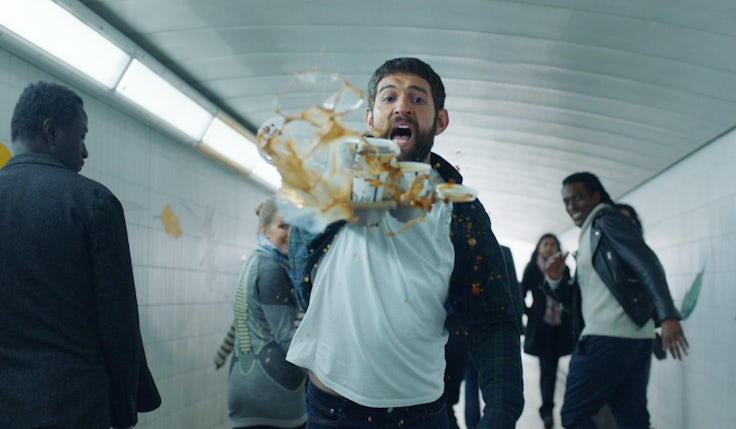 McDonald’s has launched a television campaign in the UK to push its McCafé coffee.
McDonald’s has launched a television campaign in the UK to push its McCafé coffee.
The “light-hearted” campaign aims to establish McCafé’s 99p cup of coffee as the ideal balance of quality and price as customers emerge from lockdown.
Created by creative agency Leo Burnett, the 30-second spot shows a series of people drinking (and dropping) expensive coffees, backed throughout by the ‘ker-ching’ sound of a cash till.
McDonald’s head of marketing for food and beverages, Thomas O’Neill, says: “This is a huge campaign for us and finally unleashes the true power of our 99p coffee offering, in a fun, light-hearted way.”
Klarna to increase office space to support growing workforce
Klarna plans to take on more office space as it doubles its British workforce and launches further banking products, amid soaring demand for its ‘buy now, pay later’ service.
While many companies are looking to downsize office space as employees continue to work from home, staff at Klarna have been told they must come into the office at least two days a week.
Alex Marsh, head of Klarna UK, told the Times that while productivity at the financial technology business has been high throughout the pandemic, it has struggled with the challenge of virtual collaboration.
“There is only so long you can sit in groups for hours on Google Meets. It’s much better to have ideas scrawled up on whiteboards and Post-it notes all over the place. Our teams have already said they like flexibility,” he said.
The Swedish payment firm is to move its headquarters into an 11,000 sq ft WeWork office in Holborn, London. The business is also expanding its existing space in Manchester and is looking at additional office locations in Birmingham.
Klarna’s buy now, pay later model is used by online retailers including Asos, Urban Outfitters and Missguided. The payment scheme allows customers to try products at home before committing to payment, as well as enabling customers to spread the cost of purchases out over a period of interest-free instalments.
A recent private fundraising round saw Klarna nearly triple its valuation to $31bn following a surge in online shopping during the pandemic, ranking the business as the highest-valued European private fintech.
READ MORE: Booming Klarna hopes office growth will pay off
Global TV Group arms advertisers with latest TV effectiveness evidence
In the first of three updates to its ‘Global TV Deck’ this year, the Global TV Group has collated major research from around the world to showcase how television advertising drives business outcomes.
Within the collection, marketers can read research from UK television body Thinkbox proving that within the first fortnight of a campaign, TV delivers on average 23% of media-driven sales.
Meanwhile, US-based research by VAB and Effectv shows that younger brands (three years or less) see the most significant impact from TV as they establish their identity within the market.
Thinkbox CEO Lindsey Clay says the compendium of research shows “repeatedly, forensically, and comprehensively” how TV solves business problems and why TV is a “low-risk investment” for advertisers.
“There’s an increasing culture of effectiveness in marketing. Outcomes are in. So, this new deck is timely,” she adds.
The Global TV Group is an informal grouping of TV companies and trade bodies across Europe, the US, Canada, Australia and Latin America. The updated Global TV Deck can be downloaded from the group’s website.
